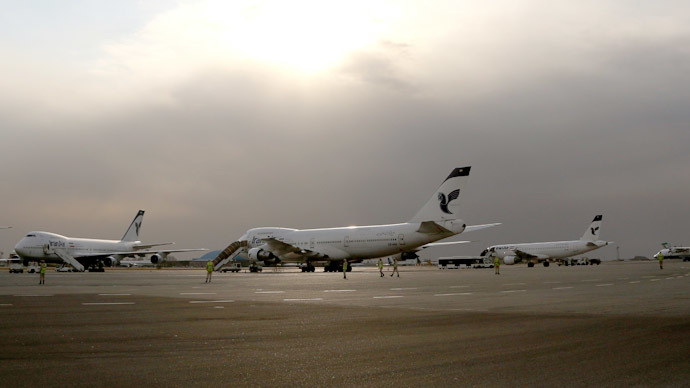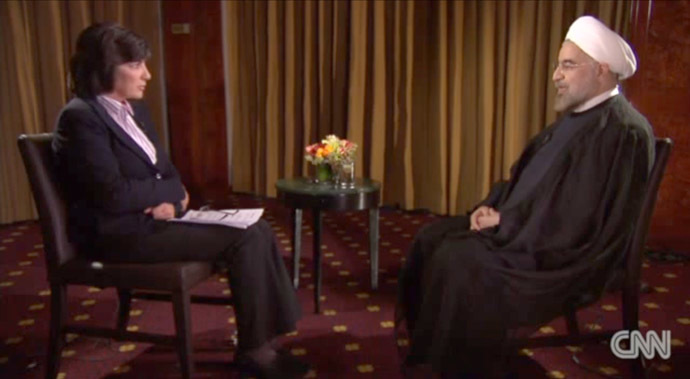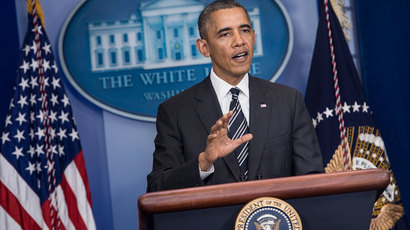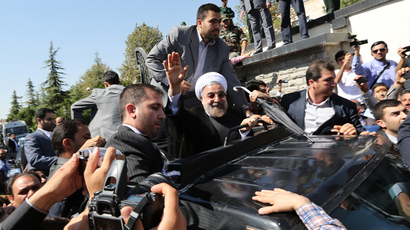Airplane diplomacy: Iran ‘to study’ possibility of direct flights to US

Iranian President Hossan Rouhani is considering resuming flights between Tehran and the US for the first time in more than three decades, in another gesture of rapprochement between the two countries.
“The president issued an order to study how it would be
possible to establish direct flights between Iran and the United
States to resolve the transportation problems of Iranians
residing in the US,” Akbar Torkan, a senior presidential
advisor who heads the country’s expatriates’ affairs committee,
was quoted as saying by the Iranian media.
The two countries severed diplomatic relations in 1980, shortly
after Iranians took US Embassy officials hostage following the
Islamic Revolution.
There have been no direct flights since the fallout, but US
census statistics reveal that there are nearly 500,000 Iranian
expats living in the country.
The prospect of direct flights has been raised several times in
the past decade, including as recently as three months ago, when
former Foreign Minister Ali Akbar Salehi was quoted as saying
that the flights would be reinstated for the sake of “public
welfare,” and Iranian media reported that US carrier Delta
Airlines would be the route’s operator.
At the time, Delta denied the report, not least because US
sanctions imposed on Iran over its nuclear program make it
illegal for any US civilian airplane to fly to the country.
But this time the prospect appears more realistic, following a
series of other landmark conciliatory moves.
In the past week, the Iranian president has publicly condemned
the killing of Jews by Nazis, in contrast to his predecessor
Mahmoud Ahmadinejad, who repeatedly called the Holocaust a
“Zionist myth” (though the exact nature of Rouhani’s words
has been hotly contested).

Rouhani has also spoken to US President Barack Obama in a
15-minute phone conversation – the first time the leaders of the
two countries have communicated directly since the Islamic
Revolution.
Most substantively, the country sat down for a new round of
negotiations with the permanent members of the UN Security
Council and Germany to discuss Iran’s nuclear program. The
parties were previously at loggerheads, as the US accused Tehran
of secretly developing a nuclear weapon, and denying access to
its facilities, while Iranian leaders insisted that its atomic
program was peaceful. The talks in New York were described as
“constructive” by both sides.
But not everyone has been swayed by Rouhani’s softer public
stance.
Iran's Revolutionary Guards - the elite wing of the army, who consider themselves the ideological protectors of the Islamic Republic - have said that the president should have refused to speak to Obama.
"If we see errors being made by officials, the revolutionary forces will issue the necessary warnings," General Mohammad Ali Jafari, the Guards' leader, declared in New York on Monday.
Both Rouhani, and the country's spiritual leader, Ayatollah Ali
Khamenei, have recently told the Guards not to meddle in
politics.
Meanwhile, Israeli Prime Minister Benjamin Netanyahu has urged
the world to look beyond Iran’s “sweet talk and the blitz of
smiles." Netanyahu, who is in the US for talks with Obama,
says any concessions from Iran have been earned through
sanctions, and that those have to be tightened further if Iran is
to be prevented from acquiring a nuclear weapon.














